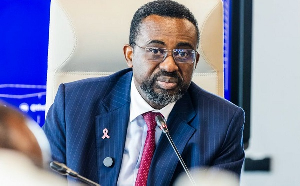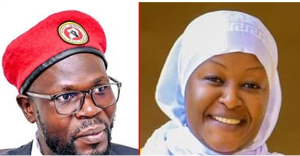General News of Wednesday, 27 September 2006
Source: GNA
Ghana hit its tele-density target ...
Accra, Sept. 27, GNA - Ghana hit its tele-density target of 20 per cent ahead of time at the end of June instead of December 2006, Communications Minister Professor Mike Ocquaye said on Wednesday. The Government had forecast to record a tele-density (the penetration of telephones throughout the country) to hit 20 per cent by the end of 2006 and 30 per cent by 2010 in accordance with the Millennium Development Goals (MDGs).
Ghana is likely to exceed the MDG target at the rate of penetration.
Professor Ocquaye, who was speaking at a function organized by the Ministry in Accra to create a platform for telecommunications operators to interact with Journalists, commended the efforts of the operators in helping the Government to achieve the target. "Some of the innovativeness that exists in the industry has given employment to especially people in the hinterland," Prof. Ocquaye said, and added that there was the need to take stock and look ahead to confront the challenges.
He, therefore, called for regular dialogue between stakeholders in the telecommunications industry to promote understanding of issues concerning their operations between them and the public. The Minister said telecommunications were essential parts of development and required a constant review of work done but the media mostly speculated about the issues.
This, he said, did not allow the public to appreciate the issues that confronted the industry.
Prof. Ocquaye said the Government would not relent on efforts to push the agenda for developing the sector forward.
He said a 40 million-dollar loan from the World Bank would help the Government to bridge the telecommunications gap between the urban and the rural areas through the hastening of the fibre optic project. Mr Bernard Forson, Deputy Director-General of the National Communications Authority (NCA), said tele-density could reach 25 per cent by the end of the year.
He expressed optimism that the industry could also hit the tele-density target of 10 per cent in the rural areas by 2010, although he noted that the growth in the industry had also brought about challenges.
He said there was the need to consider the area of Internet penetration as part of efforts to address the needs of the rural communities.
Mr Forson said the NCA would ensure that the obligations to customers by the operators were met and that there existed a level playing field.
Mr Kofi Asante, Administrator of the Ghana Investment Fund for Telecommunications (GHIFTEL), said his outfit was granting initial partial funding to entrepreneurs to help to provide universal access to telecommunications facilities to the rural communities.
He explained that the work of the GHIFTEL was to promote socio-economic development and this would be done equitably. Mr Asante said GHIFTEL had done upfront assessment of the needs of the industry and had initiated projects to cover selected areas of the country.
GHIFTEL expects to implement 22 such projects by the early part of 2007.












